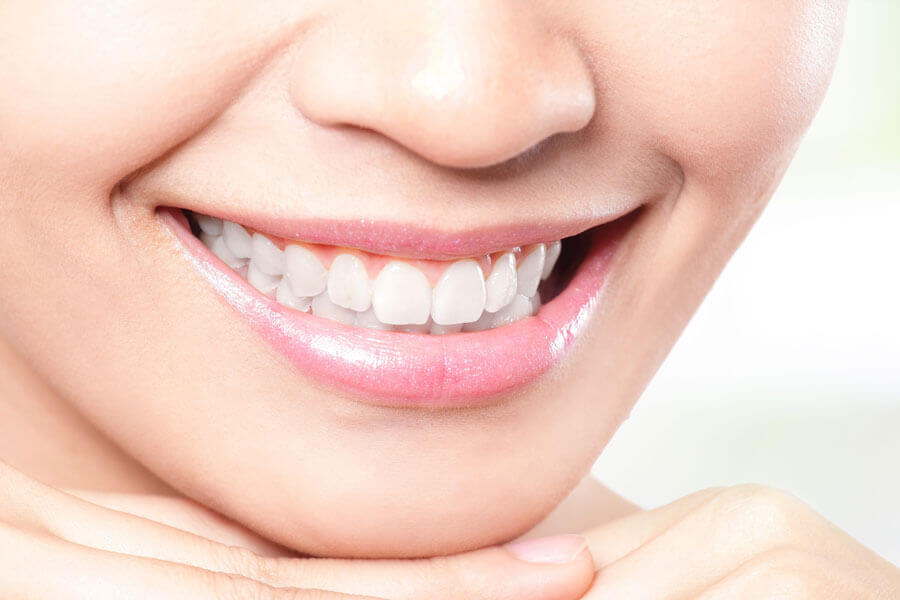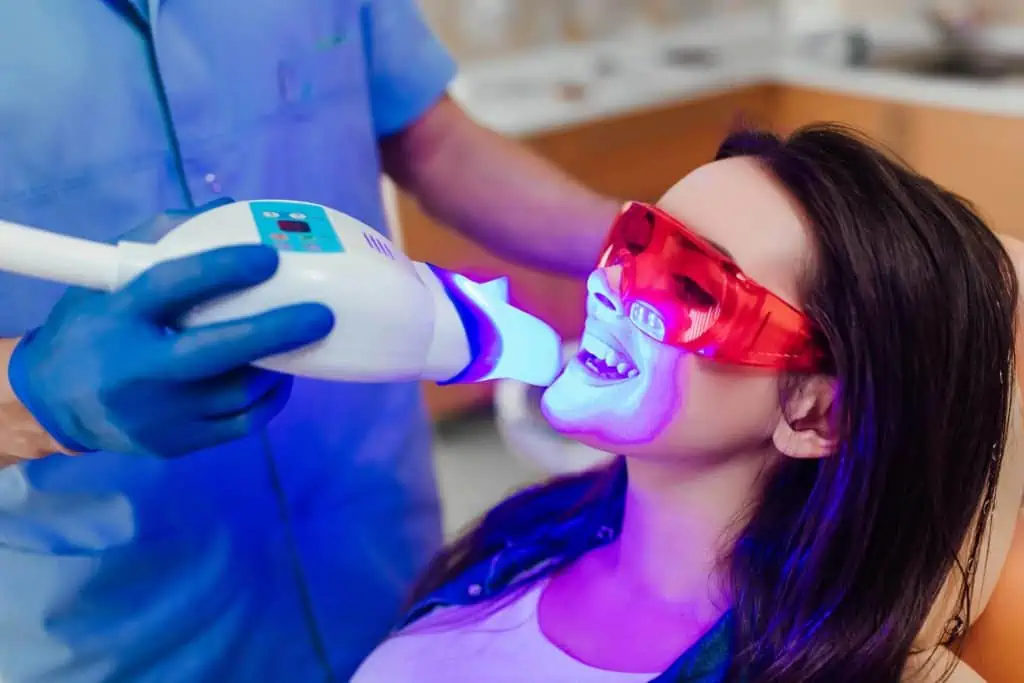Whitening
Teeth Whitening is when the color of your teeth changes. They might appear yellowed or less bright, or they may develop white or dark flecks. This is the procedure of making teeth whiter, and therefore more attractive.
Whitening
Our advanced tooth whitening procedure delivers remarkable results. It’s safe, effective, and quick. In just over an hour, your teeth will be noticeably whiter. Unlike traditional methods that require days of using strips or wearing trays, makes it the perfect choice for busy individuals. The procedure is simple. It begins with a short preparation to isolate your lips and gums. Then, our clinician applies our specialized whitening gel, which is then activated by a specially designed light.
Typically, teeth become at least six to ten shades whiter, sometimes more. We finish the procedure with a fluoride treatment for added protection. You’ll be amazed by the results, and in most cases, teeth continue to whiten even further in the days following the procedure. To maintain your brighter smile, we recommend trays with whitening gel for ongoing whitening and maintenance.
What is the procedure of Dental Whitening?

Teeth Whitening works by removing stains and discoloration from the teeth. Bleaching agents work by breaking down the molecules that cause stains. There are two main types: In-office whitening and Over-the-counter whitening products.
In-office whitening
This type of Teeth Whitening is performed by a dentist or dental hygienist. The dentist will apply a bleaching agent to your teeth, and then use a light or laser to activate the agent. In-office whitening is typically more expensive than over-the-counter whitening products, but it is also more effective.
Over-the-counter whitening products
There are many different over-the-counter whitening products available, including strips, gels, and toothpastes. These products typically contain a bleaching agent, such as hydrogen peroxide or carbamide peroxide. Over-the-counter whitening products are less expensive than in-office whitening, but they are also less effective.
Restore your confidence, stability, and oral health with our Teeth Whitening solutions.

Smile Gallery
“What your future smile can look like“


Frequently Asked Questions
What are the risks of teeth whitening?
Teeth whitening can cause some side effects, such as:
- Tooth sensitivity: This is the most common side effect of teeth whitening. Tooth sensitivity can be caused by the bleaching agent, which can irritate the gums and nerve endings in the teeth. Tooth sensitivity is usually temporary and goes away within a few days.
- Gingival irritation: This is also a common side effect of teeth whitening. Gingival irritation can be caused by the bleaching agent, which can irritate the gums. Gingival irritation is usually temporary and goes away within a few days.
- Tooth enamel damage: This is a rare side effect of teeth whitening. Tooth enamel damage can be caused by overuse of bleaching agents.
Who is a good candidate for teeth whitening?
Teeth whitening is a safe and effective procedure for most people. However, it is not recommended for people with:
- Gum disease: Gum disease can make the gums more sensitive to bleaching agents.
- Cavities: Cavities can make the teeth more sensitive to bleaching agents.
Pregnant women: Pregnant women should talk to their doctor before getting their teeth whitened
How to prepare for a teeth whitening procedure?
If you are considering getting your teeth whitened, there are a few things you can do to prepare:
- Talk to your dentist: Your dentist can help you determine if teeth whitening is right for you and can recommend the best procedure for you.
- Brush and floss your teeth regularly: This will help to remove plaque and bacteria from your teeth, which can make the whitening process more effective.
- Avoid smoking and drinking coffee and tea: Smoking and drinking coffee and tea can stain your teeth and make them less responsive to whitening treatments.
Aftercare for teeth whitening?
After you have had your teeth whitened, there are a few things you can do to help maintain the results:
- Continue to brush and floss your teeth regularly.
- Avoid smoking and drinking coffee and tea.
- Use a whitening toothpaste.
- Get your teeth whitened professionally again every six months to a year.


